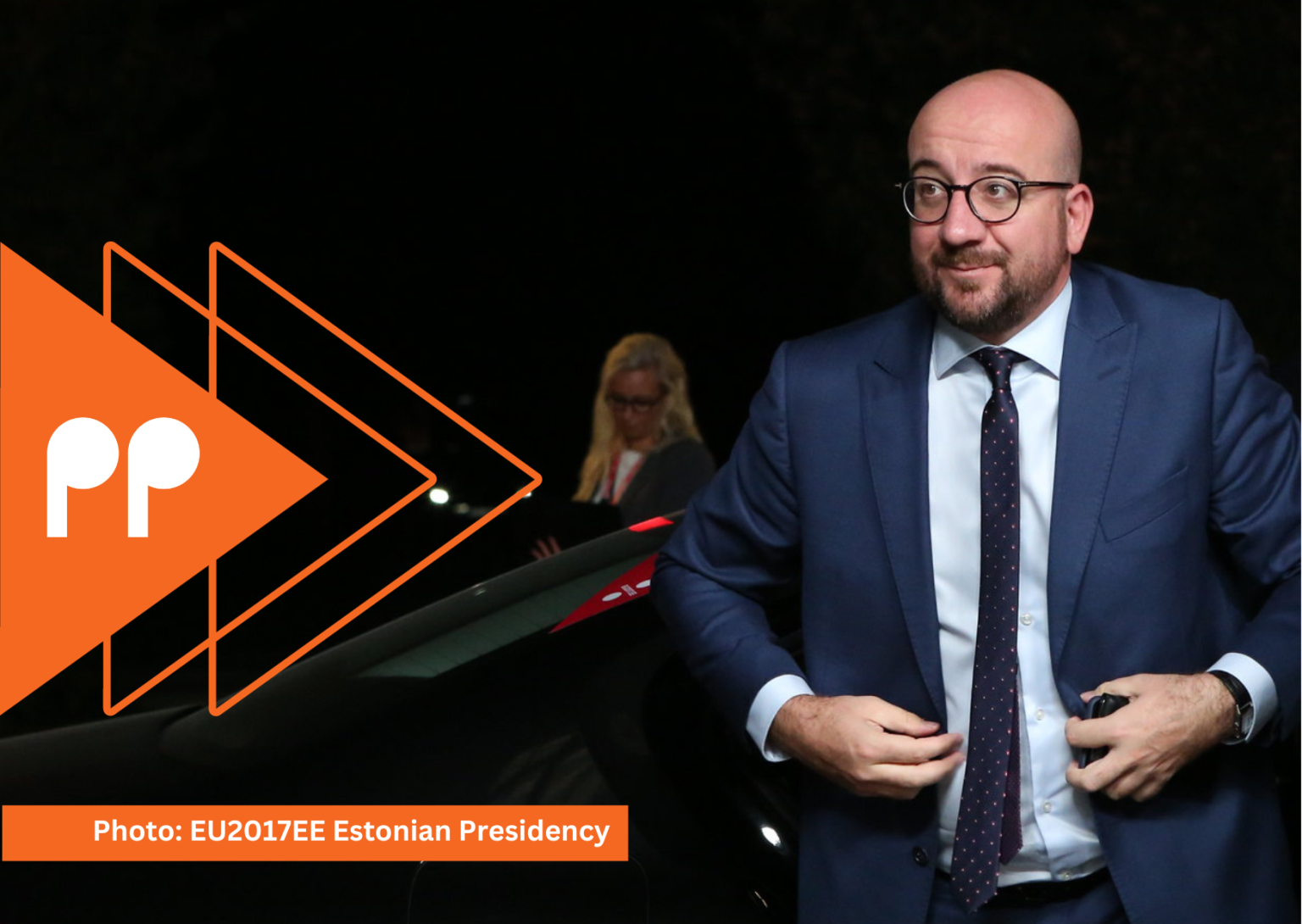Charles Michel recently announced his surprising decision to step down as the President of the European Council before the end of his term and become the lead candidate for MR (Le Mouvement réformateur) in the upcoming European Parliament (EP) elections.
This move, while unexpected, fits a pattern of politicians alternating between appointed and elected roles. It ignites debate about the motives underlying such a transition and the potential repercussions on political standing. Michel’s choice, debatable to some, prompts an exploration into the complexities of such transitions. Are these political moves good for politicians or are they downgrades?
Michel’s political odyssey
Michel’s political journey began with Belgium’s liberal Reformist Party (MR), leading to his Prime Ministership in 2014. During his tenure, he focused on social integration issues and a significant welfare-dependent population. His departure in 2019 coincided with a decline in popularity for both him and the liberal faction.
Transitioning to the European Council as President, Michel experienced varied success. His tenure was marked by progress across the Council, Parliament, and Commission, despite controversies like the #SofaGate incident with Turkish President Erdogan.
Photo Credit: AFP
Yet, Michel’s diplomatic efforts, particularly in negotiations with Hungary and Poland, were crucial in advancing various agendas. Michel’s decision to step down as Council President and lead MR in the upcoming elections has been unexpected, especially given MR’s strong polling in Belgium.
Prominent European politicians’ famous career transitions
Michel’s move from the presidency of the European Council to a lead candidacy in the European Parliament for his party is not without historical precedent in European politics. Many other European leaders had similar career shifts that mirrored Michel’s path. Here are some.
- Jean-Claude Juncker: From European Commission President to Return in Luxembourg:
Juncker assumed the role of President of the European Commission in 2014. He made a surprising return to Luxembourgish politics in 2018 from the background helping the Christian Social People’s Party (CSV) in the parliamentary elections and pushing them to get the majority of votes in the ballot.
Photo Credit: European Parliament
- Martin Schulz: From European Parliament President to German National Politics:
While Martin Schulz was elected as an MEP, he opted for a European seat rather than a national one. After a successful tenure as the President of the European Parliament from 2012 to 2017, Schulz transitioned back to German national politics. In 2017, he became the Social Democratic Party’s (SPD) candidate for the German Chancellorship.
Photo Credit: European Council
- Josep Borrell: From European External Action Service to Spanish Politics:
Prior to his current role as the High Representative of the European Union for Foreign Affairs and Security Policy, Borrell served as the President of the EP from 2004 to 2007. In a surprising twist, he later returned to Spanish politics, becoming the Minister of Foreign Affairs, EU and Cooperation in the Spanish government. Borrell’s transition was to come back to another appointed job. Yet, he still made a move which had an electoral impact for his party in Spain.
Photo Credit: EPP Group
- Viviane Reding: European Commissioner to Member of the European Parliament:
After serving as the European Commissioner for Justice, Fundamental Rights, and Citizenship from 2010 to 2014, Reding made a seamless transition to the EP. In 2014, she was elected as a Member of the EP (MEP) from Luxembourg. This shift allowed her to bring her extensive European experience to the legislative process, illustrating the potential for a continuum of influence across different European institutions.
Photo Credit: European Parliament
Decoding political motivations: ambitions and party dynamics
The allure of returning to national politics, the desire to effect change at a more local level, or the pursuit of new challenges are all factors that contribute to these decisions. But let’s be honest, politicians have personal ambitions and also parties have electoral needs. Let’s remember that we do not have truly pan-European elections. We have national elections electing representatives from national constituencies to the EP. Michel is running now in front of the Belgian electorate in a year where Belgium will also have federal and regional elections.
Figures like Michel often face a choice between comfortable appointed positions and the dynamic arena of electoral politics. Experienced leaders bring legitimacy to parties in need and show that the priority is the electorate and not just comfortable positions in political institutions. So it’s clear, the party benefits. But what is it for the politician itself? Well, politicians need their party support and the support of their European political family to ultimately get to any position. So many times, when the party calls, one has to follow.
Many politicians have the choice to remain in appointed positions and join foundations or universities. The comfortable choice for someone like Michel would have been to wait for a nomination possibly as Spitzenkandidat of the liberals. Borrell accepted being in symbolic roles before coming back to national Spanish politics. However, many times, the personal preferences of politicians get overshadowed by the needs of their political parties.
The transition from appointed positions in European institutions to electoral politics involves overcoming perceptions of disconnection from local concerns. However, these transitions offer leaders a chance to bridge local and continental issues, enhancing their political acumen.
The European Parliament as a platform, not a retirement house
The EP is increasingly recognised as a vital platform for sustaining and enhancing political influence. Active MEPs like Michal Šimečka in Slovakia or Anna Donáth in Hungary have bolstered their parties through their European experience, and have become party leaders.
Michel’s future, potentially in leadership roles within Renew Europe or even as President of the EP, remains to be seen. His decision to seek election symbolises a bid to regain public trust and potentially bolster his party’s standing. Michel’s move, and others like it, illustrate that returning to national ballots involves strategic challenges and opportunities.

